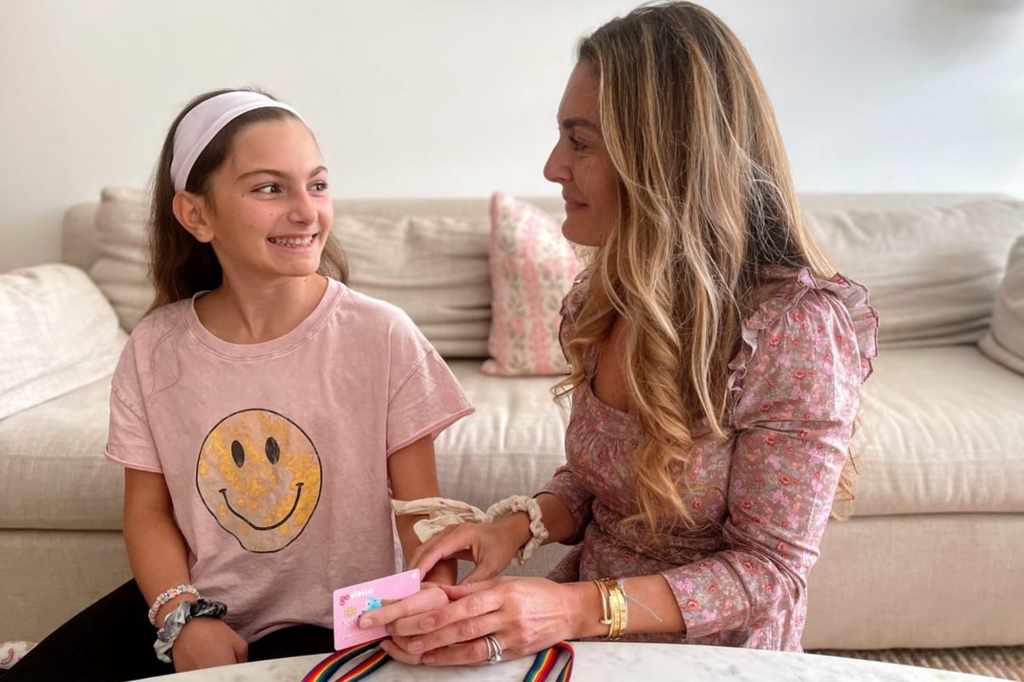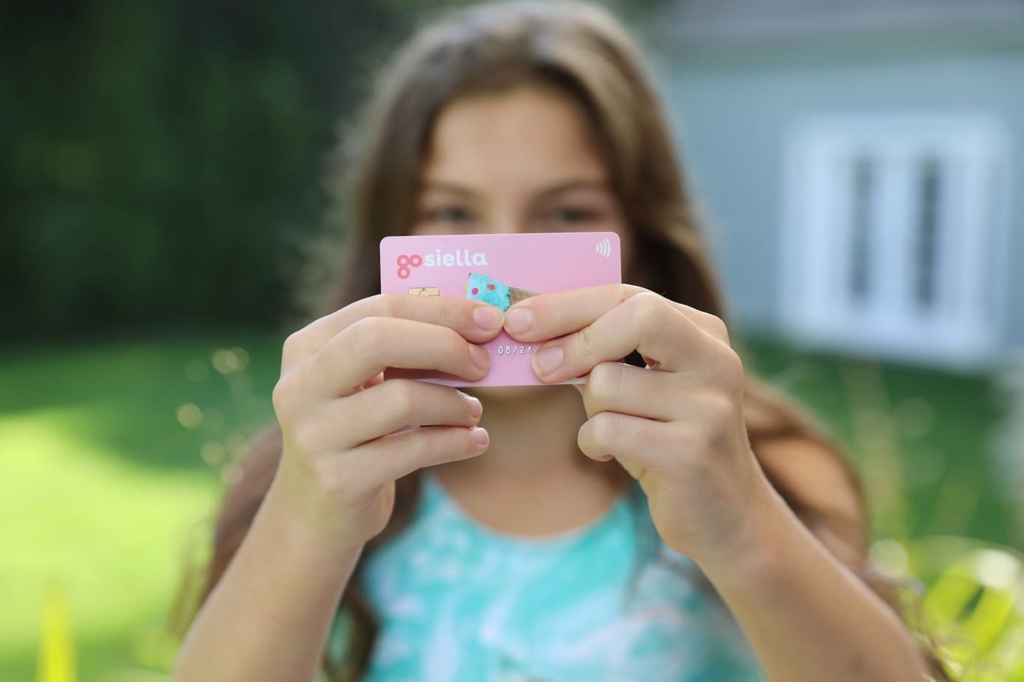Teaching tool or ‘too much too soon’?
They’re only tweens, but they’re already getting carded.
Believing that it’s never too early to encourage financial literacy, Wisconsin mom of two Renee Benes has already started schooling her children Kaida, 12, and Madden, 11, in the do’s and don’ts of debt.
Benes is one of a growing number of parents hoping to hone their children’s money-management skills by giving them each their own debit card, linked to her bank account, which she allows them to use for everything from purchases at Target to snack kiosks at their local mall.
“I really wanted to give my kids the experience of properly managing the money they make from doing chores,” Benes, 36, who lives in a small town near Minneapolis, told The Post. In May, she gave them both kiddie debit cards from Greenlight, which offers debit cards and a finance-managing app to parents and kids.
“The debit card teaches them how to spend, save, give to charity and make investments,” she said, adding with a chuckle: “And the best part is, I don’t have to worry about going to the bank to take out cash for their allowance.”
The hunt for pint-size plastic-holders is on. About one-fifth of kids ages 13 to 17 have a credit card, and roughly double that carry debit cards, according to Next Gen Personal Finance, which offers financial resources to teachers. But many companies now market cards to kids still in elementary school.
Greenlight has no age minimum — technically a newborn could hold one in its tiny clutches. There’s also BusyKid, marketed to babes as young as 5, and GoHenry for children ages 6 and up. All offer a debit-card-and-app combo, presumably to teach little ones financial independence and literacy but also how to, well, spend.
While certified parenting coach Laura Knight told The Post that kiddie debit cards come as a “really good learning opportunity that teaches kids the value of money,” other experts are more skeptical, particularly when it comes to kids still mastering the art of tying their shoes.

Giving a kindergartner the responsibility of controlling their own funds is “too much too soon,” said one.
“A 5- or 6-year-old should not be overseeing their own money,” financial adviser Joyce Rojas, who specializes in behavioral finance, told The Post. “They should be relying on their parents and not having their own card to swipe for things.”
Kiddie plastic can be a tricky business. During the pandemic, one Connecticut mom discovered that her 6-year-old had racked up $16,000 in charges, dropping hundreds of dollars at a time on his favorite video game, Sonic Forces.
Despite the ease with which a child can rack up debt while playing on their iPad, national banks are now eagerly marketing to them. In October 2020, Chase rolled out its Chase First Banking checking account, which comes with a debit card and app for knee-high capitalists ranging in age from 6 to 17.

A representative for the bank explained to The Post: “Teaching kids about money is a big lifelong lesson — and starting early is key to setting them for long-term success.”
However, 10 is more of an appropriate age to begin teaching children money management “and maybe introducing the idea” of a debit card, said Rojas.
Manhattan mom Brianne Manz said she doesn’t regret giving son Ryder, 13, and daughter Siella, 11, their own debit cards.
“I want to teach my kids how to manage their money in a responsible way, and the debit cards have been a great way to do that,” Manz, 41, a lifestyle influencer living in Battery Park, told The Post.
In September, she was tapped to test out Greenlight’s kid-friendly card as a one-time paid advertiser and share clips of her kids using the cash substitute on social media.
However, since the deal ended last fall, Manz has continued paying her kids’ allowances through the card, which they use to treat themselves, and sometimes friends, to Starbucks or a slice of pizza.
“It gives them a sense of independence, and I’m able to monitor their card balances, limit how much they spend in a day, where they can shop and how they’re saving and donating their money,” she said. “It’s been a real game changer.”
Read the full article Here


